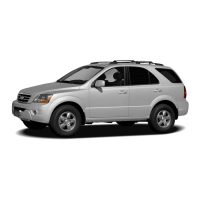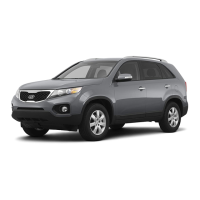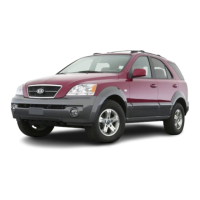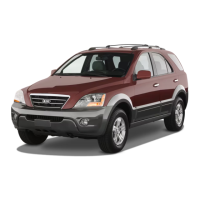5
1
1
Introduction Fuel requirements
ing to the following temperature
conditions.
䳜 Above -5C (23F) ... Summer
type diesel fuel.
䳜 Below -5C (23F) ... Winter type
diesel fuel.
Watch the fuel level in the tank very
carefully : If the engine stops
through fuel failure, the circuits
must be completely purged to
restart.
Do not let any petrol or water enter
the tank. This would make it neces
-
sary to drain it out and to bleed the
lines to avoid jamming the injection
pump and damaging the engine.
Diesel Fuel (if equipped with DPF)
It is recommended to use the regu
-
lated automotive diesel fuel for die
-
sel vehicle equipped with the DPF
system. (if equipped)
If you use diesel fuel including high
sulfur (more than 50 ppm sulfur)
and unspecified additives, it can
cause the DPF system to be dam
-
aged and white smoke can be emit
-
ted. (if equipped)
Biodiesel (For New Zealand)
Commercially supplied diesel blends
of no more than 7% biodiesel, com
-
monly known as "B7 diesel" may be
used in your vehicle if biodiesel
meets EN 14214 or equivalent spec
-
ifications. (EN stands for "European
Norm"). The use of biofuels exceed
-
ing 7% made from rapeseed methyl
ester (RME), fatty acid methyl ester
(FAME), vegetable oil methyl ester
(VME) etc. or mixing diesel exceed
-
ing 7% with biodiesel will cause
increased wear or damage to the
engine and fuel system. Repair or
replacement of worn or damaged
components due to the use of non
approved fuels will not be covered
by the manufactures warranty.
䳜 Never use any fuel, whether die
-
sel or B7 biodiesel or otherwise,
that fails to meet the latest
petroleum industry specification.
(if equipped)
䳜 Never use any fuel additives or
treatments that are not recom
-
mended or approved by the vehi
-
cle manufacturer. (if equipped)

